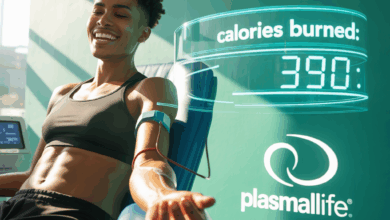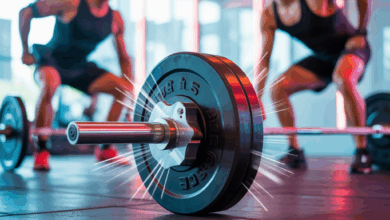Can I Workout The Day After Cupping

Ever woken up with fresh circular marks from cupping and wondered, “Can I still hit the gym today?” Whether you’re an athlete using cupping therapy for recovery or someone getting it to relieve tight shoulders, deciding whether to exercise the day after cupping can feel unclear. Let’s walk through safe, effective choices so you can keep training without undoing the benefits of cupping.
Quick answer: Can I workout the day after cupping?
Yes — you usually can, but it depends. Factors like the type of cupping (dry vs. wet), where cups were applied, how intense the session was, and how your body feels will determine whether you should push hard or take it easy. In general, light to moderate movement is safe and often beneficial, while heavy lifting or aggressive high-intensity training over cupped areas is best avoided for 24–48 hours.
Why your body’s response matters
Cupping therapy creates localized increased blood flow and sometimes mild tissue inflammation. The circular marks are signs of that circulation and lymphatic movement. Because cupping aims to promote recovery, too much stress on the same muscles too soon can delay healing or cause extra soreness. Listening to your body and adjusting intensity is the key.
Factors to consider before exercising
- Type of cupping: Dry cupping (suction only) is less invasive than wet cupping (which involves minor incisions).
- Location of cups: Cupped areas on legs vs. upper back influence what workouts are appropriate.
- Your training schedule: If you have a heavy leg day planned but got cupping on your hamstrings, modify accordingly.
- How you feel: Pain, dizziness, or excessive tenderness are signs to rest.
How to workout the day after cupping: Practical guidelines
Below are practical, situational tips that respect recovery while keeping you active.
1. Start with a movement check
- Gently move through the range: try shoulder circles, hip hinges, or bodyweight squats to assess comfort.
- If you experience sharp pain or lightheadedness, stop and rest — these are red flags.
2. Opt for low-impact cardio
Walking, easy cycling, or swimming (if advised by your therapist) can enhance circulation and speed recovery. Keep effort light to moderate — a conversational pace is a good rule of thumb.
3. Choose mobility and restorative sessions
Yoga, Pilates, and dedicated mobility work are excellent the day after cupping. They help maintain range of motion and reduce stiffness without stressing tissues excessively.
4. Modify strength training
- Avoid heavy compound lifts targeting cupped areas for 24–48 hours. For example, if your back was cupped, replace deadlifts with single-leg Romanian deadlifts focusing on form and lighter load.
- Use unilateral or accessory work that spares the treated region. If your calves were cupped, target upper body or core instead.
- Lower volume and intensity — fewer sets, lighter weight, slower tempo.
5. Rehydrate, refuel, and rest
After cupping, hydration and nutrition are essential. Drink plenty of water to support lymphatic flow and eat a balanced, protein-rich meal to aid muscle repair. Prioritize sleep — many gains and recovery processes happen overnight.
Sample day-after-cupping workouts
Scenario 1: Upper back cupping
- Warm-up: 10 minutes easy walk + shoulder mobility
- Workout: 20–30 minutes light cycling; 15 minutes mobility (thoracic rotations, band pull-aparts with light tension)
- Cool-down: gentle stretching and foam rolling around (but not directly on) cupped areas
Scenario 2: Hamstrings or glute cupping
- Warm-up: dynamic leg swings, ankle mobility
- Workout: full-body circuit focusing on upper body and core (push-ups, rows, plank variations) + low-impact cardio
- Optional: single-leg balance and light eccentric work if comfortable
Scenario 3: General recovery session
- Gentle yoga flow (30–45 minutes)
- Breathing exercises and guided relaxation
- Hydration and a protein-plus-carb snack post-session
When to skip the gym and rest
There are times when rest is the best workout. Avoid exercising if you have:
- Intense pain or spreading soreness beyond the cupped area
- Dizziness, nausea, or signs of infection after wet cupping
- Significant bleeding after wet cupping or open wounds
When in doubt, check with your cupping practitioner or a medical professional. Athletes with competition schedules should coordinate cupping sessions around training cycles to avoid peak-day interference.
Real-world examples that make sense
A runner training for a half marathon used cupping on sore calves on Monday. She went for a 20-minute brisk walk the next day and did an easy cross-training swim—both helped loosen tissue without risking injury. A powerlifter scheduled cupping two days before a heavy meet and only performed light mobility work the day after, preserving peak performance.
Can I workout the day after cupping? Final considerations
So, can i workout the day after cupping? Yes — most of the time you can, but be smart about intensity, location, and how your body responds. Use lighter workouts, prioritize mobility, hydrate, and avoid pounding heavy loads on treated muscles for at least 24–48 hours. Tailoring your exercise choices will keep you progressing without compromising recovery.
Frequently Asked Questions
Generally no, especially if HIIT targets the cupped areas. HIIT can increase inflammation and delay the healing benefits of cupping. If you must do cardio, choose a lower-intensity session and monitor how you feel.
If you had dry cupping and the skin is intact, light swimming is usually fine. If you had wet cupping (with incisions), avoid pools or public bodies of water until any punctures have healed to reduce infection risk.
Most people should wait 24–48 hours before returning to heavy lifts that stress cupped muscles. For particularly deep or intense cupping sessions, consider waiting longer or easing back with reduced volume and load.
Conclusion — Keep moving, but prioritize recovery
Can i workout the day after cupping? The smart answer is yes, but with intention. Use light cardio, mobility, or modified strength work to support recovery. Listen to your body, stay hydrated, and time intense sessions away from recent cupping on the same muscle groups. Want tailored workouts that fit around recovery treatments like cupping? Check out my workout routines and explore nutrition tips in the nutrition guides to maximize performance — or browse more wellness tips to optimize your recovery plan.
Ready to plan your next session? Track how you feel after cupping and adjust your next workout accordingly — your future performance will thank you.





